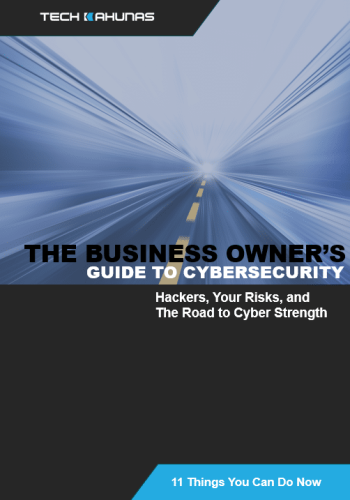Biotech companies seeking venture capital must implement rigorous cybersecurity practices to safeguard their sensitive data and technologies. Regular risk assessments and threat identification are essential for prioritizing vulnerabilities. Extensive security policies, robust access controls, and data encryption are vital measures for protecting information integrity. Secure cloud and network infrastructures, maintained by continuous threat monitoring, fortify defensive strategies against cyber risks. Employee training on cyber hygiene guarantees a vigilant security culture, understanding emerging threats and social engineering tactics. Incident response planning is imperative for minimizing potential damage. By considering these strategic insights, companies can solidify their cybersecurity posture to attract investors.
Key Takeaways
- Conduct regular risk assessments to identify and prioritize potential vulnerabilities.
- Develop comprehensive security policies with robust access controls and regular audits.
- Implement data encryption protocols and secure cloud and network infrastructure.
- Train employees on cyber hygiene to recognize and respond to emerging threats.
- Establish continuous threat monitoring and well-defined incident response planning.
Conduct Regular Risk Assessments
In the rapidly evolving landscape of biotechnology, conducting regular risk evaluations is an indispensable practice to safeguard sensitive data and proprietary technologies. As biotech companies increasingly rely on digital platforms for operations, the threats to cybersecurity have intensified, necessitating robust risk evaluation methodologies.
These methodologies are essential in identifying, analyzing, and prioritizing potential vulnerabilities that could compromise the integrity of vital data and intellectual property. Risk evaluation methodologies in the biotech sector must be meticulously crafted, incorporating both quantitative and qualitative analyses to guarantee thorough coverage.
This involves not only evaluating the likelihood of various cyber threats but also understanding their potential impact on the organization's strategic goals. By employing advanced risk evaluation tools and techniques, companies can gain strategic insight into their risk profile and allocate resources effectively to mitigate identified vulnerabilities.
Furthermore, vulnerability management strategies play a significant role in the ongoing process of risk evaluation. These strategies involve continuous monitoring and updating of security protocols to address emerging threats.
Implement Data Encryption Protocols
Data encryption protocols serve as a crucial defense mechanism in the cybersecurity arsenal of biotech companies. By implementing robust data encryption technologies, these companies can safeguard sensitive information from unauthorized access and potential breaches.
Encryption transforms data into a secure format that is only accessible to those with the decryption key, ensuring that even if data is intercepted, it remains unintelligible to malicious actors. Biotech firms, which often handle proprietary research data and patient information, must prioritize encryption to adhere to stringent data protection regulations.
The strategic use of encryption extends beyond mere compliance; it is essential for risk mitigation and maintaining investor confidence. Venture capitalists are increasingly scrutinizing the cybersecurity practices of potential investment targets, making the implementation of cutting-edge encryption solutions a decisive factor in attracting funding.
By demonstrating a proactive approach to data security through advanced encryption technologies, biotech companies can differentiate themselves in a competitive market.
Moreover, encryption protocols should be integrated into every facet of data management, from storage to transmission. This thorough approach not only protects intellectual property but also aligns with evolving data protection regulations, thereby reducing the risk of costly data breaches and regulatory fines.
Develop a Comprehensive Security Policy
Developing a thorough security policy is critical for biotech companies to safeguard sensitive data and intellectual property.
This requires a strategic approach, beginning with the identification of potential threats specific to the biotech sector, followed by the establishment of robust access controls to restrict unauthorized access.
To guarantee the ongoing effectiveness of these measures, it is essential to implement regular audits, which will assess the security posture and identify areas for improvement.
Identify Potential Threats
Recognizing the critical importance of preemptive measures, biotech companies must diligently identify potential threats to their cybersecurity infrastructure. The dynamic threat landscape presents a myriad of challenges, with emerging vulnerabilities continuously evolving.
Companies must be vigilant in understanding the various attack vectors that could compromise sensitive data, particularly intellectual property critical to maintaining a competitive edge. Insider threats, often underestimated, can result in significant data breaches if not properly managed.
Additionally, third-party risks pose a substantial concern, as partnerships with external vendors may inadvertently introduce vulnerabilities. Ensuring regulatory compliance is paramount, as failure to adhere to industry standards can result in severe penalties and damage to reputation.
Phishing attacks continue to be a prevalent method for cybercriminals seeking unauthorized access to confidential information.
Moreover, supply chain risks must be carefully assessed, as any weakness in this area can be exploited to disrupt operations or steal valuable data.
Establish Access Controls
To effectively mitigate cybersecurity risks, establishing robust access controls is imperative in a biotech company's security strategy. Implementing role-based access guarantees that employees have access only to the information necessary for their specific roles, adhering to the principle of least privilege.
Multi-factor authentication enhances security by requiring additional verification, such as security tokens, before granting access. This approach is particularly crucial when considering remote access, as it reduces the likelihood of unauthorized entry.
Furthermore, conducting regular access reviews is critical to maintaining an up-to-date understanding of user permissions. These reviews help identify discrepancies and guarantee compliance with the company's security policies.
Utilizing access logs offers insights into user activities, aiding in the detection of unusual patterns that may indicate potential breaches.
To efficiently manage sensitive data, data segmentation can be used to compartmentalize information based on sensitivity levels, thereby minimizing exposure. Additionally, implementing session timeouts helps secure sessions that may otherwise be vulnerable if left unattended.
- Role-based access: Tailors permissions to specific job functions.
- Multi-factor authentication: Adds layers of security beyond passwords.
- Access logs: Monitor user activities for anomalies.
- Data segmentation: Protects sensitive information.
- Session timeouts: Mitigate risks from unattended sessions.
Implement Regular Audits
Building upon the foundation of robust access controls, regular audits are instrumental in fortifying a biotech company's cybersecurity posture. By instituting a structured audit frequency, biotech firms can proactively identify vulnerabilities, ensuring that access controls and other security measures remain effective against evolving threats.
Regular audits serve as a significant feedback mechanism, allowing companies to continuously refine and enhance their cybersecurity strategies. This proactive approach is essential in a landscape where cyber threats are both sophisticated and persistent.
A well-documented audit process is imperative for maintaining transparency and accountability. Audit documentation should capture detailed records of findings, actions taken, and recommendations for future improvements. This documentation not only supports internal reviews but also demonstrates a company's commitment to cybersecurity diligence to potential investors.
Such diligence is essential for biotech companies seeking venture capital, as investors prioritize companies with robust risk management practices.
Moreover, strategic insight into audit processes can facilitate better allocation of resources, directing efforts towards the most significant areas of risk. Ultimately, the implementation of regular audits, supported by thorough audit documentation, acts as a cornerstone of a thorough security policy, safeguarding sensitive data and fostering investor confidence.
Train Employees on Cyber Hygiene
Amidst the rapidly evolving threat landscape in the biotech sector, training employees on cyber hygiene is an indispensable defense strategy. As biotech companies seek venture capital, demonstrating robust cybersecurity measures is essential.
Extensive cyber awareness training guarantees employees can identify and mitigate potential threats, reducing risks of data breaches and financial loss. Phishing simulations and data protection workshops are fundamental components, equipping staff with the skills to recognize and respond to malicious attempts at data compromise.
Incorporating secure coding practices is necessary for software development teams to prevent vulnerabilities. Regular incident response drills prepare employees to act swiftly and effectively during a cyberattack, minimizing potential damage.
Furthermore, password management strategies and remote work security protocols are foundational in protecting sensitive information from unauthorized access.
An effective training program should also address insider threat prevention and social engineering tactics, equipping employees with the knowledge to recognize and report suspicious activities. Compliance training guarantees adherence to industry regulations, a significant factor for investor confidence.
By fostering a culture of cybersecurity mindfulness, biotech companies not only safeguard their data but also enhance their attractiveness to potential investors.
- Cyber awareness training
- Phishing simulations
- Data protection workshops
- Secure coding practices
- Incident response drills
Secure Cloud and Network Infrastructure
Establishing a robust cybersecurity culture through employee training is only one layer of defense; safeguarding cloud and network infrastructure is equally essential in protecting biotech companies from sophisticated cyber threats.
As biotech firms increasingly rely on cloud services to store sensitive research data and intellectual property, implementing thorough cloud security measures becomes imperative. This entails deploying encryption for data at rest and in transit, ensuring robust access controls, and using multi-factor authentication to mitigate unauthorized access risks.
Network segmentation is another critical strategy in fortifying network infrastructure. By dividing the network into distinct segments, companies can limit lateral movement of cyber threats, thereby containing potential breaches and minimizing damage. Each segment can be secured with tailored security policies and monitoring tools, reducing the attack surface.
Additionally, adopting a zero-trust architecture further enhances security by assuming that threats can originate from anywhere, both inside and outside the network. This approach requires continuous verification of user identities and device integrity before granting access to critical resources.
Biotech companies seeking venture capital must demonstrate their commitment to these advanced security practices, assuring potential investors that their cloud and network infrastructures are resilient against evolving cyber threats.
Monitor for Threats Continuously
Consistently monitoring for threats is an essential component in the cybersecurity strategy of biotech companies. In the rapidly evolving landscape of cyber threats, leveraging threat intelligence and automated monitoring tools is imperative for identifying potential risks before they escalate.
Biotech companies must adopt a proactive approach, integrating continuous monitoring solutions that can detect anomalies and unauthorized activities in real-time. This not only protects sensitive data but also enhances investor confidence.
Implementing robust automated monitoring systems enables biotech firms to:
- Identify Patterns: Detect unusual patterns and behaviors that could indicate a cyber threat.
- Real-Time Alerts: Receive immediate notifications of potential security breaches, facilitating swift action.
- Threat Intelligence Integration: Utilize data-driven insights to understand emerging threats specific to the biotech industry.
- Resource Optimization: Allocate cybersecurity resources more efficiently by focusing on high-risk areas identified through continuous monitoring.
- Scalable Solutions: Adapt monitoring capabilities as the company grows and the volume of data increases.
Establish Incident Response Plans
In any organization, especially within the biotech sector, having a well-defined incident response plan is vital for mitigating the impact of cyber threats. Biotech companies, characterized by sensitive intellectual property and complex regulatory requirements, must prioritize the development of robust incident response strategies.
Such plans must encompass crisis communication protocols to guarantee clear, timely, and accurate information dissemination during a cyber incident. This involves identifying key stakeholders—ranging from internal teams to external partners and regulatory bodies—and establishing predefined communication channels to maintain trust and transparency.
Strategic stakeholder engagement is critical to an effective incident response. This requires assigning roles and responsibilities within the response team, making certain that all involved parties are well-versed in their duties. Regular training and simulation exercises can enhance readiness and identify potential weaknesses in the response framework.
Moreover, an agile approach to incident management allows organizations to adapt to evolving threats, minimizing disruption to operations and safeguarding sensitive data.
Ultimately, an incident response plan should not only focus on immediate threat containment but also incorporate lessons learned to refine future strategies. By embedding a culture of continuous improvement, biotech companies can reassure venture capitalists of their resilience and commitment to cybersecurity excellence.
Frequently Asked Questions
How Can Biotech Startups Prioritize Cybersecurity in Their Budget Planning?
Biotech startups can prioritize cybersecurity in budget planning by conducting a thorough risk assessment to identify vulnerabilities, followed by strategic budget allocation that guarantees sufficient resources are dedicated to mitigating identified risks and fortifying overall security posture.
What Role Does Cybersecurity Play in Attracting Venture Capital Investors?
Cybersecurity considerably enhances investor confidence by demonstrating robust data protection measures. This strategic insight into risk awareness reassures venture capitalists of the company's commitment to safeguarding sensitive information, thereby making it a more attractive investment opportunity.
How Can Biotech Companies Ensure Third-Party Vendor Compliance With Cybersecurity Standards?
Biotech companies can guarantee third-party vendor compliance with cybersecurity standards through rigorous vendor assessment processes and regular compliance audits, thereby mitigating risks and strategically aligning vendor practices with organizational security policies to maintain data integrity and protection.
What Are the Legal Implications of a Cybersecurity Breach for Biotech Firms?
Biotech firms face significant legal implications from cybersecurity breaches, including potential violations of data privacy laws and regulatory compliance requirements. These breaches can result in substantial financial penalties, legal liabilities, and reputational damage, emphasizing the need for strategic risk management.
How Can Biotech Companies Effectively Communicate Their Cybersecurity Efforts to Potential Investors?
Biotech companies should present clear cybersecurity metrics and demonstrate robust risk management practices to guarantee investor transparency. By showcasing strategic insights and technical expertise, firms can effectively communicate their commitment to safeguarding sensitive data and maintaining investor confidence.



 Get your CPA firm aquainted with new FTC rules.
Get your CPA firm aquainted with new FTC rules. 




